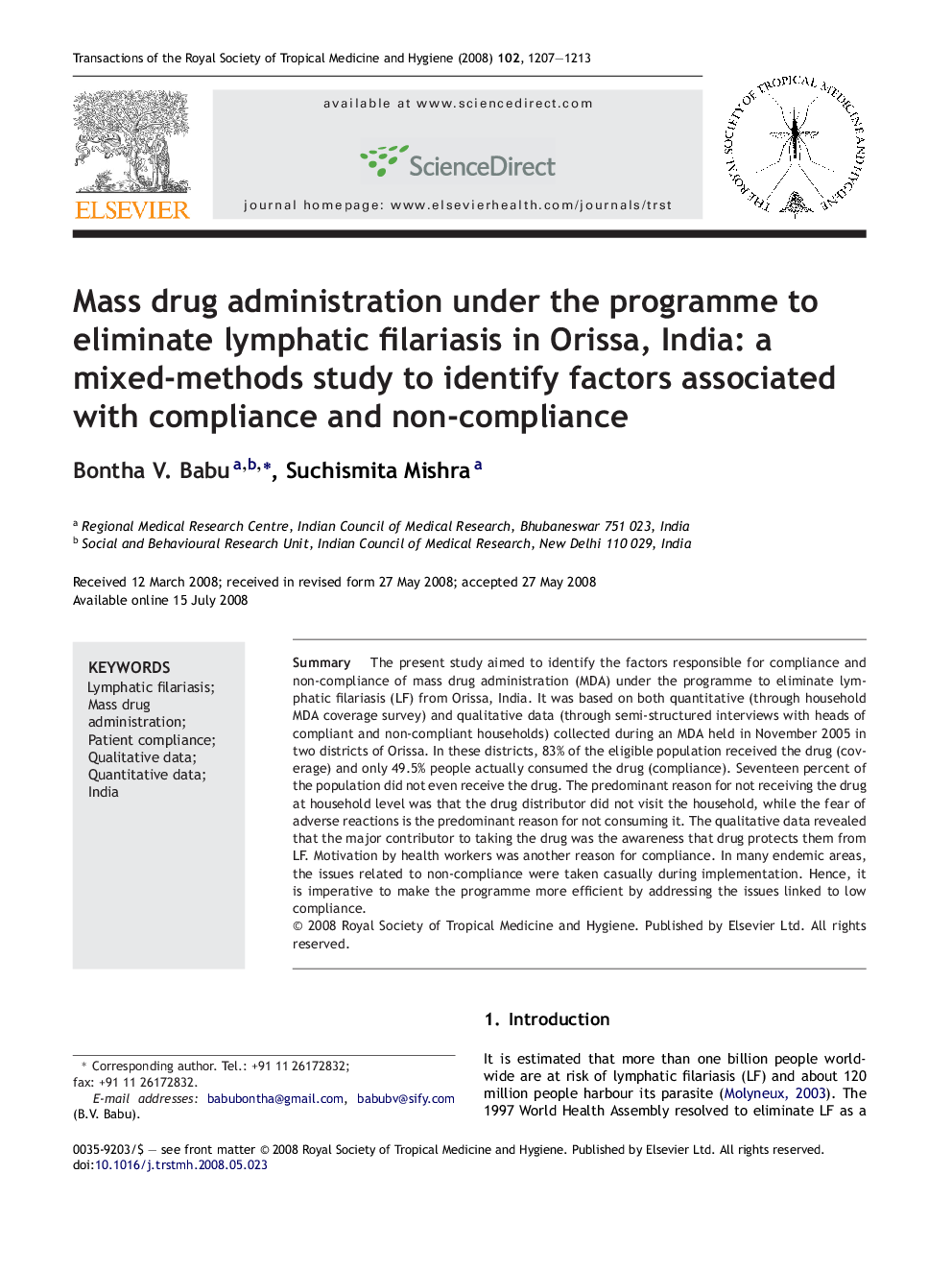| Article ID | Journal | Published Year | Pages | File Type |
|---|---|---|---|---|
| 3421290 | Transactions of the Royal Society of Tropical Medicine and Hygiene | 2008 | 7 Pages |
Abstract
The present study aimed to identify the factors responsible for compliance and non-compliance of mass drug administration (MDA) under the programme to eliminate lymphatic filariasis (LF) from Orissa, India. It was based on both quantitative (through household MDA coverage survey) and qualitative data (through semi-structured interviews with heads of compliant and non-compliant households) collected during an MDA held in November 2005 in two districts of Orissa. In these districts, 83% of the eligible population received the drug (coverage) and only 49.5% people actually consumed the drug (compliance). Seventeen percent of the population did not even receive the drug. The predominant reason for not receiving the drug at household level was that the drug distributor did not visit the household, while the fear of adverse reactions is the predominant reason for not consuming it. The qualitative data revealed that the major contributor to taking the drug was the awareness that drug protects them from LF. Motivation by health workers was another reason for compliance. In many endemic areas, the issues related to non-compliance were taken casually during implementation. Hence, it is imperative to make the programme more efficient by addressing the issues linked to low compliance.
Keywords
Related Topics
Life Sciences
Immunology and Microbiology
Applied Microbiology and Biotechnology
Authors
Bontha V. Babu, Suchismita Mishra,
